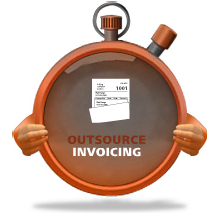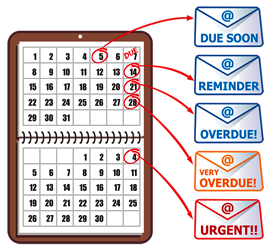
Credit Control
Small and medium-sized enterprises (SMEs) are businesses that often have no requirement for a full-time credit person.
However poor cash flow is the single largest cause of a business failing in the UK. No matter how good your business is or how profitable you have the potential to be, if cash does not flow then your business will die. Your business needs money to pay its own debts, to pay its staff salaries, to pay its overheads, etc. Cash must flow in from your debtors on time so that you can pay it back out to your creditors on time. Cash flow to a business is like air to you and me.
Consequently, invoices need to be chased in order to ensure that they are paid promptly both now and in the future.
“Give your debtors an inch and they will take a mile”. If clients know that there will be little or no consequence in delaying when it comes to paying your invoices then they will procrastinate!
Type It Tiger provides an credit control outsourcing service to meet the needs of SMEs. Allow us to:
- Credit check new customers and open new credit accounts ensuring the SME has all the relevant information on the debtor
- Deal with paperwork – sending out invoices, credit notes…
- Implement your company’s credit policies
- Chase invoices by making telephone calls
- Deal with late payments
- Report to management on outstanding issues providing early warnings of potential debtors problems
- Issue final reminder letters
- Maintain a record of all communication with the customer – this is important if payment problems result in legal recovery proceedings
- Resolve all problems for clients, copy invoices, proof of delivery, credit notes…
- Instruct collection agencies and / or solicitors and then appear in court on behalf of the SME if required
- Deal with factoring and credit insurance if required
- Reconcile accounts and month end reconciliation for the whole debtor ledger
- Deal with liquidators and the writing off of bad debts

By way of example, let us assume that your cost of borrowing (perhaps on an unsecured overdraft basis) of 9%, let us also assume that the underlying inflation rate is 3%. VAT is currently 20% in the UK. If you are owed £100,000 then your cost of funding that debt is £24.66 per day (£100,000 x 9% / 365). Due to inflation that money is depreciating by £7.98 per day [(£100,000 – (£100,000 x 100/103))/365]. Funding the VAT element of £20,000 at 9% will cost you a further £4.93 per day. In total a late payment of £100,000 will cost your business £37.57 per day that the payment is late or £13,713 per year!
Unless your agreements are drafted in a manner to enable you to recover these costs you find that you are not able to recover them.
This situation could be still worse if the money you are owed is in a foreign currency and the exchange rate moves against you. Imagine that you are owed $100,000 US Dollars when the GBP/USD exchange rate is 1.50. The money you are owed is equivalent to £66,666 GBP. If payment is late and in the interim period the GBP/USD exchange rate moves to 2.00 then the $100,000 USD will only be worth £50,000. The delay in payment would have cost you a further £16,666.
Add to these costs the administrative cost of chasing debts, the opportunity cost of not being able to re-invest the money owed in your business and the cost of funding a bad debt reserve and these costs mount still further.
Industry standards for funding a bad debt reserve are recommended by auditors to be:
- 0 – 30 days zero reserve
- 30 – 60 days 1% reserve
- 60 – 90 days 2% reserve
- 120 – 180 days 10% reserve
- Over 180 50% reserve
The reason for a bad debt reserve is that the older the debt, the higher the risk that it may never be paid. As a consequence the business needs to hold a reserve of money to cover itself in the event of default.
Using the example above, it is easy to see how a late debt of £100,000 could very easily cost your business more than £30,000 (an additional 30% of the amount owed).
Now it should be easy to understand why good credit control is so critically important to your business.
More particularly, with so much money at stake, good credit control should more than pay for itself.
